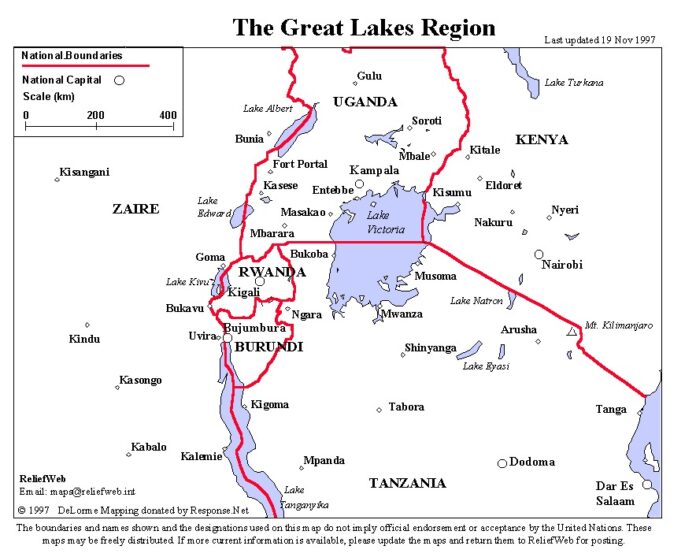In the heart of Africa, where the vast Great Lakes ripple across the land, lies a forgotten story—a tale of diplomacy, unity, and ambition that echoes the pan-African ideals many dream of today.
This is the story of the Great Lakes Confederation, an early attempt at regional unity among African kingdoms, long before the concept of pan-Africanism as we know it took root.
A Pre-Colonial Alliance
In the late 18th century, the African Great Lakes region was home to powerful kingdoms like Buganda, Rwanda, and Bunyoro. These kingdoms thrived along the shores of Lakes Victoria, Tanganyika, and Kivu.
While the modern history of Africa often focuses on conflict and colonial exploitation, the Great Lakes Confederation was a remarkable, albeit brief, period of cooperation among these entities.
At the time, powerful rulers like Kabaka Jjunju of Buganda and King Ruganzu Ndoli of Rwanda recognized the value of unity. They forged a strategic alliance to protect their territories from external threats and internal rebellion.
This confederation was not built on conquest but on mutual benefit—an understanding that unity brought strength in trade, military might, and cultural exchange.
The Federation’s Reach and Influence
The Great Lakes Confederation extended across what is today Uganda, Rwanda, Burundi, and parts of the Democratic Republic of Congo and Tanzania. With trade routes running through the region, the confederation became a hub for exchanging goods such as iron, salt, cattle, and bananas.
Beyond economic ties, the confederation also promoted cultural exchanges, where art, music, and even ideas of governance crossed borders and communities.
This partnership helped each kingdom strengthen its autonomy while collectively facing regional challenges. Unlike the often centralized empires in West Africa or the Sudanic states, the Great Lakes Confederation was a decentralized network—a precursor to the very ideas that pan-Africanism promotes: unity in diversity.
The Confederation’s Collapse
Despite its initial success, the Great Lakes Confederation did not last long. As the 19th century wore on, the encroachment of European explorers and colonial powers disrupted the delicate balance.
The scramble for Africa, coupled with internal power struggles, weakened the confederation’s political and economic bonds. By the time European colonialism reached its peak, the once-thriving alliance was fragmented.
Historians believe that the memory of this confederation lived on in local traditions, shaping how these kingdoms approached colonial rule and, later, independence. The spirit of cooperation, negotiation, and collective identity that existed during the confederation became a foundational element in how these nations viewed themselves and their neighbors.

